How to Stop Microsoft Teams From Launching at Startup
Microsoft Teams is an application that is used by several businesses for the sake of communication. It provides a high-quality video conferencing, along with other features like file storage and application integration. Applications like Microsoft Teams have recently gotten popularity due to the ongoing pandemic as people start working and studying from home. Microsoft Teams became a part of Office 365 in late 2019. While the application has its own features that are widely used, one of the features that are found annoying by some users is the fact that it starts automatically when your Windows machine boots up.

Now, this can be useful to some users, while others may not be fond of it even if they use it. Nonetheless, you can disable this so that Microsoft Teams does not open up when the operating system boots up. There are various ways you can do this. You can do it through the settings of the Teams application icon on the taskbar. In addition, the same result can be achieved from the Task Manager or the Windows startup settings window. We will be going through all of these options so you can choose whatever you find easy and quick.
There are some cases where you are not able to prevent it from launching on startup. This is because there is a registry key made for Microsoft Teams by the developers that control this feature. Therefore, in order to overcome that, you will have to delete that specific key in the Windows Registry window. With that said, let us start with the different methods that are available to you.
Method 1: From the System Tray
The first and easiest way that you can actually stop Microsoft Teams from launching at startup is via the Microsoft Teams icon on the system tray. When the application launches, an icon of the application appears on the taskbar. This can be seen if you have the application running right now. Thus, you can go through the settings option that pops up when you right-click on the icon and disable the option that starts it on boot up. Follow the step-by-step instructions down below to do this:
- On your system tray, locate the Microsoft Teams icon.
- Then, right-click on the icon and a menu appears.
- On the popped-up menu, go to Settings and then choose the Do not auto-start Teams option.

Disabling MS Teams Auto-start - That will prevent it from launching at startup.
Method 2: From the Task Manager
Another way that you can stop the Teams application from launching at startup is from the Task Manager. The Task Manager has a startup tab that lets you see what applications will launch during startup. You can disable any applications that you want as well as change the impact of that application on startup. Follow the instructions down below to disable Microsoft Teams on startup:
- First of all, right-click on your taskbar and then choose Task Manager from the pop-up menu. Alternatively, you can just press the shortcut keys i.e. Ctrl + Shift + Esc. That will bring up Task Manager as well.
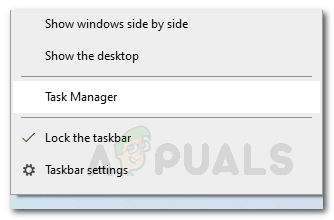
Launching Task Manager - Once the Task Manager window has launched, switch to the Startup tab.
- There, you will be able to see all the applications that launch on startup.
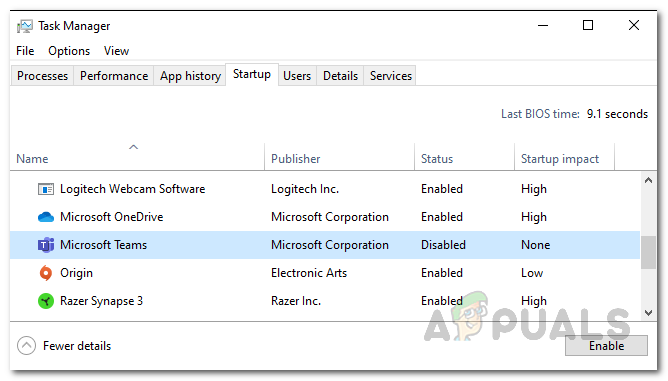
Task Manager Startup - Find Microsoft Teams and select it.
- Then, at the bottom, click the Disable button.
Method 3: From Windows Settings
As it turns out, you can also change the startup applications through the Windows Settings window. This is rather simple to do and it requires just a few clicks. Windows Settings has a separate option for Apps that lets you manage the different applications on your machine. To change the startup apps, follow the instructions down below:
- First of all, open up the Start Menu and then click on the settings icon on the left to launch the Settings window. You can also just press the Windows key + I to open up the Settings window.
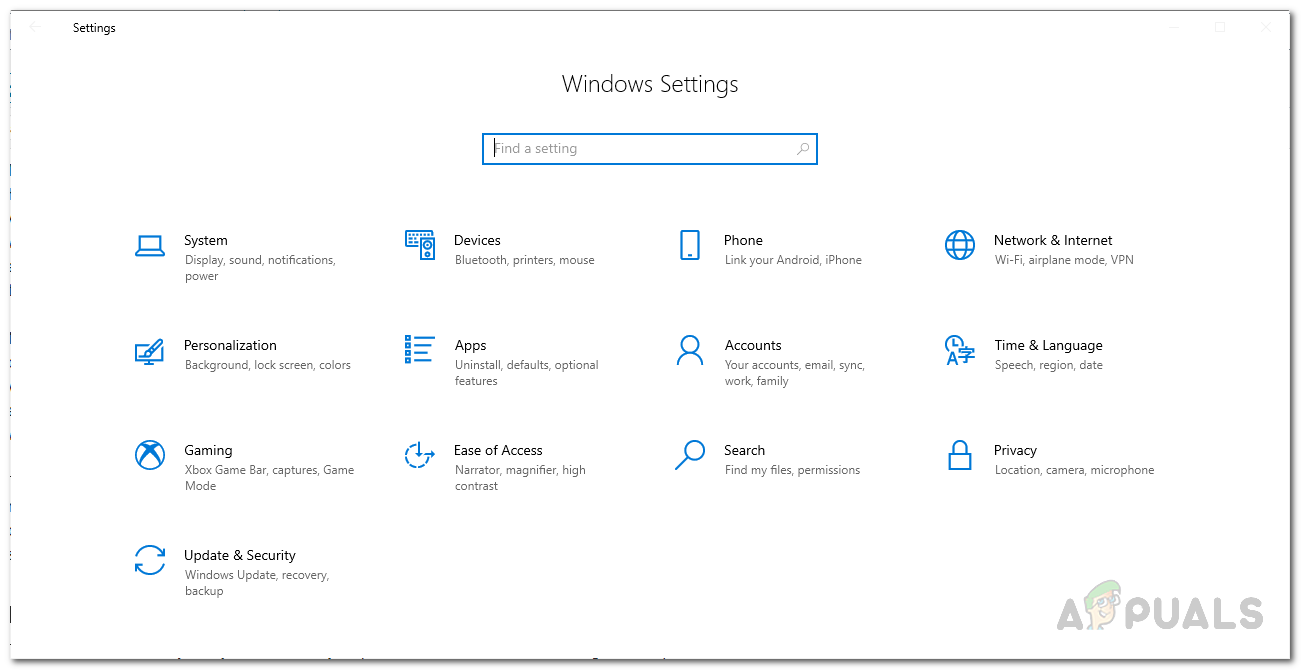
Windows Settings - Then, click on the Apps option.
- On the Apps screen, go to the Startup tab on the left-hand side.
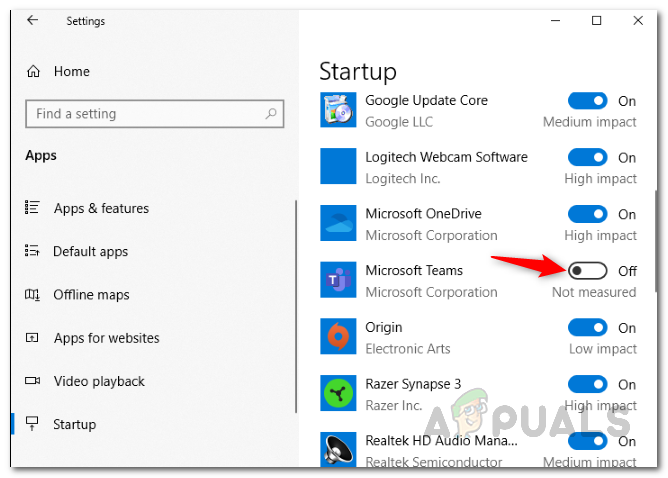
Startup Apps - There, locate Microsoft Teams and just click the switch to turn it off.
Method 4: Deleting Registry Key
In some cases, you cannot disable the Microsoft Teams using the normal steps that you would take to prevent any other application from starting up at startup. This is because Microsoft Teams has a registry key that controls the startup behavior of the application. Therefore, in order to disable the startup feature of the application, you will have to delete the registry key inside the Windows Registry. Please make sure that you do this if the above methods do not achieve the desired result for you. This is because messing with the Windows Registry is not really recommended if you do not know what you are doing. If you are going to proceed, please make sure you follow each and every step carefully. With that said, let us begin:
- First of all, open up the Run dialog box by pressing the Windows key + R.
- Then, in the Run dialog box, type regedit and press the Enter key.
- This will open up the Windows Registry window.
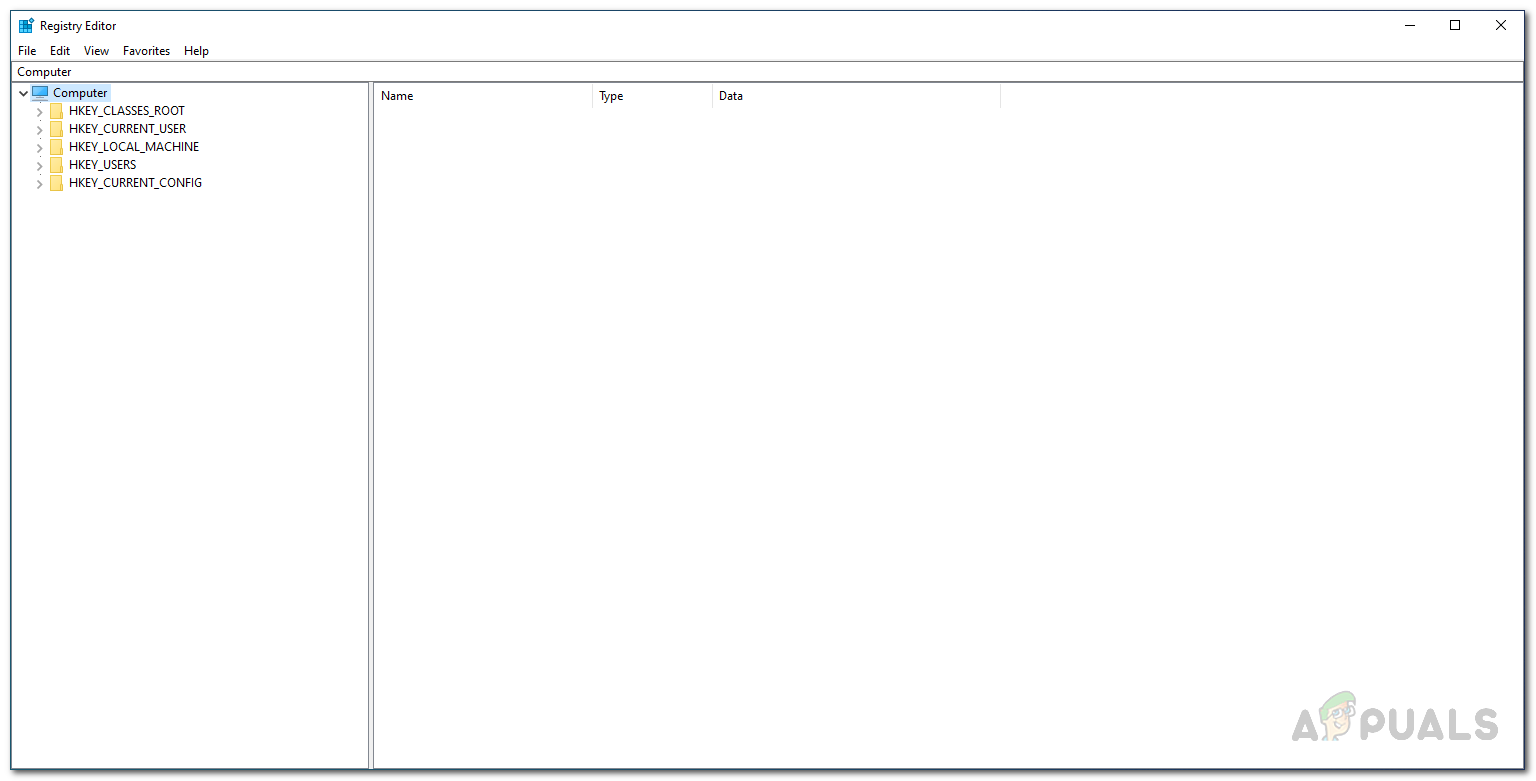
Windows Registry - Now, you have to navigate to the following path:
Computer\HKEY_CURRENT_USER\Software\Microsoft\Windows\CurrentVersion\Run
- There, on the right-hand side, delete the com.squirrel.Teams.Teams entry.
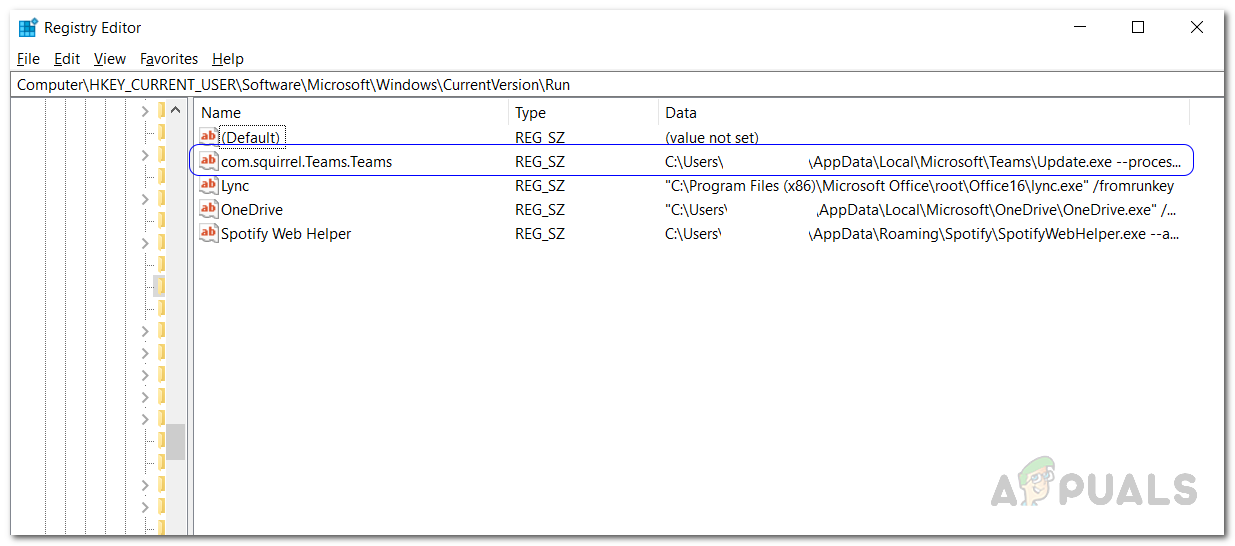
Disabling Teams on Startup from Registry - To do this, simply right-click on the key and choose the Delete option.
- After that, close the Windows Registry window and reboot your machine.
- Microsoft Teams should not start during boot up now.





